Election Day: What Schools are Saying
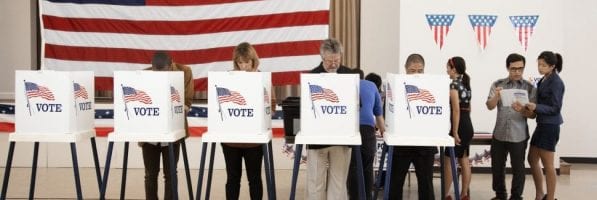
It’s election day in the U.S., so for our international readers: whoops! Let’s check out some of the day’s big stories coming out of U.S. schools.
Engineered Electioneering – Kellogg Insight
“When it comes to persuading voters, the timing of a candidate’s message may be as important as the message itself,” Kellogg Insight explains.
The overall conclusion of how to approach election messaging comes from new research by Angela Y. Lee, Professor of Marketing at the Kellogg School of Management. With Concordia University of Montréal Assistant Professor Hakkyun Kim and University of Minnesota Professor Akshay R. Rao, the trio’s research finds surprising details that former U.S. President Barack Obama successfully utilized in 2008.
In short, the group’s research finds that voters are more responsive to grander, large-scale ideas the further the election is away. However, as Election Day draws closer, more concrete ideas take precedent.
“[Obama] was emphasizing abstract themes and capturing the imagination of caucus goers, while his opponents were capturing the attention of the D.C. establishment, who then spent a fair amount of time dissecting and critiquing their various plans to fix health care, get out of Iraq, and what have you,” Rao says of Obama’s 2008 campaign.
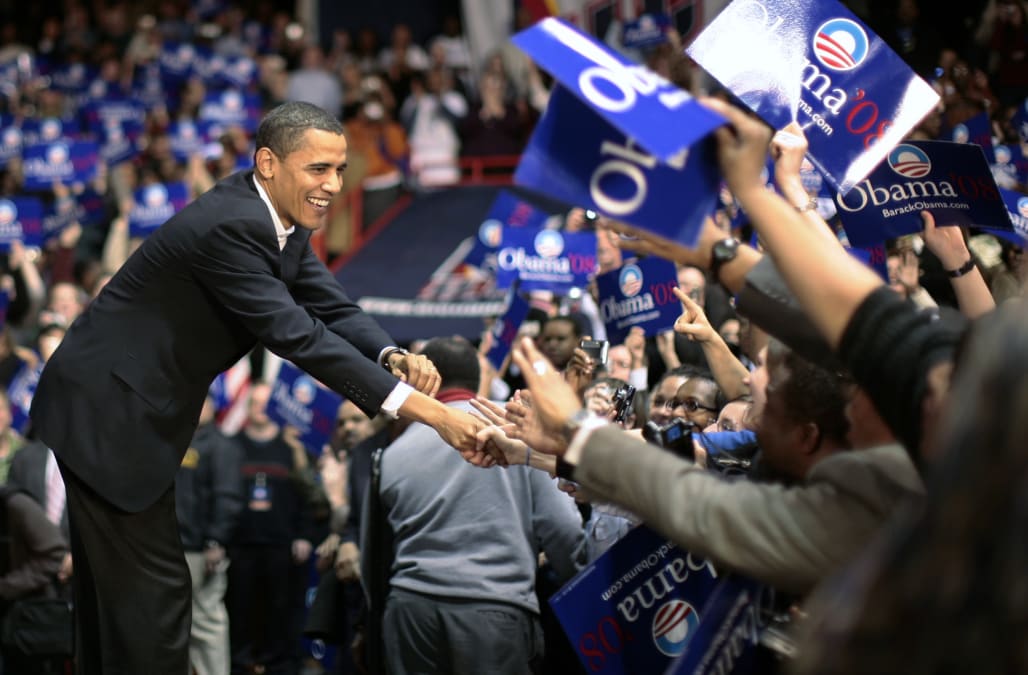
Northwestern Kellogg research finds that sweeping campaign messaging is more effective when Election Day is further away; a campaign tactic utilized heavily by Barack Obama in 2008.
The trio note that this approach goes beyond politics. In fact, they argue, the methods can be utilized successfully by marketing in other industries.
Insights from the study, Lee notes, may help consumer goods marketers develop more persuasive messages and may also help public health officials design more effective campaigns against such health threats as obesity and smoking. For example, she says, messages that urge people to lose weight or quit smoking as an immediate goal should provide concrete information on how the objective can be achieved.
You can find out more about the research here.
Even a Few Bots Can Shift Public Opinion in Big Ways – The Conversation
As the political landscape rapidly shifts in the U.S. and elsewhere, the internet bot game becomes increasingly important. In The Conversation, Tauhid Zaman, Associate Professor of Operations Management, MIT Sloan School of Management analyzes just how much of an impact these elements may have on Election Day.
His research found that bots had a much smaller presence than others may have speculated: “less than 1 percent of the active Twitter users.”
In addition, Zaman’s work, with his students net another surprising result: Twitter bots helped Hillary Clinton in 2016 more than Donald Trump.
The reason for this, Zaman concludes, is that the effectiveness is not due to the volume, but rather how much individual bots perform. The research finds that there were more Trump-supporting bots in ’16, however, Clinton bots tweeted more on average. He does, however, note that the research only gives a small window into the potential impact bots have.
It’s worth noting that our analysis looked at a relatively small number of users, especially when compared to the voting population. And it was only during a relatively short period of time around a specific event in the campaign. Therefore, they don’t suggest anything about the overall election results. But they do show the potential effect bots can have on people’s opinions.
Click here to read more about Taman’s work.
The Election Just Ahead – The Harvard Gazette
Harvard staff writer Christina Pazzanese, in her newest piece for The Harvard Gazette, details the relative uncertainty of what may happen on Election Day this year. “With polling often inaccurate in the last election, no one can confidently predict what the results will be this time, despite any evident trend lines going in,” she writes.
The focus of her piece lies on three principle elements: youth turnout; hacking; and ideology. On youth turnout, Pazzanese immediately notes that youth demographics have the worst statistical rates of turnout cycle after cycle in the U.S. With infused commitment to voter registration at the Boston university, turnout could reach a record high. However, like Pazzanese says, polling can be “often inaccurate.”
If results from a new Harvard Institute of Politics (IOP) Youth Poll are accurate, turnout among Harvard students could reach a high. Forty percent of voters age 18‒29 say they will definitely vote in the midterm, according to the findings released Oct. 29. Though poll director John Della Volpe said the organizers don’t expect that many to turn out, past trends indicate that, even accounting for the usual gap of -7.5 points between those who say they will vote and those who actually do, the figure suggests young voters will turn out in significantly greater numbers than in many years past. The only midterms in which young voters turned out at a greater rate than their typical 18‒20 percent were in 1986 and 1994, he said.
In regards to voter ideology, Pazzanese paints a more ambiguous outlook.
“Amid such rapid change, political analysts and practitioners have struggled to keep pace, especially since 2016 showed how off-track most had gotten. Many hoping to understand how voters think and behave now recognize that polling and opinion data aren’t delivering a rich enough portrait of where the electorate is moving ideologically, and why.”
Tackling ideology movement in 2018 is endearingly challenging, but left-leaning political data service Catalist, co-founded by current CEO Laura Quinn, a visiting fellow at the Ash Center for Democratic Governance and Innovation at HKS, may have a new approach. The company organized voters into less-than-traditional groups, by approaching potential voters in a different manner.
“So instead of asking questions about expected topics like the Affordable Care Act or gun ownership, which cause people to self-sort into partisan groups, Catalist asks about things that don’t signal an obvious right or left response, but gets at someone’s values. These are queries like ‘Is it morally good or bad to leave a dog out in the rain, or for a soldier to refuse to obey a potentially illegal order from commanders?'” Pazzanese writes. The results are as follows:

Quinn notes the grouping is not a total encapsulation of the electorate, however. “None of these things perfectly explains why people are the way they are. People are complicated, and they change. It’s the constellation of things that you believe that give you a sense of the person.”
You can read more about election day from The Harvard Gazette here.
Are International MBAs Avoiding the United States?
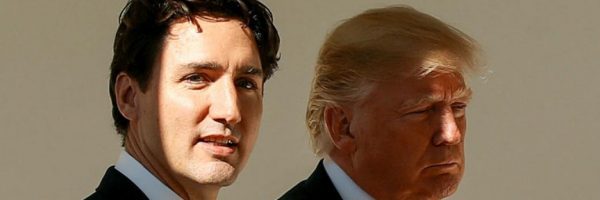
Based on data from the most recently Graduate Management Admissions Council (GMAC) monthly survey, interest in U.S. business schools among international MBA candidates is still below pre-2016 election levels. In fact, it’s below the previous five-year average for each month since the election. And in each of the last three months—between September and November 2017—international application volume has decreased.
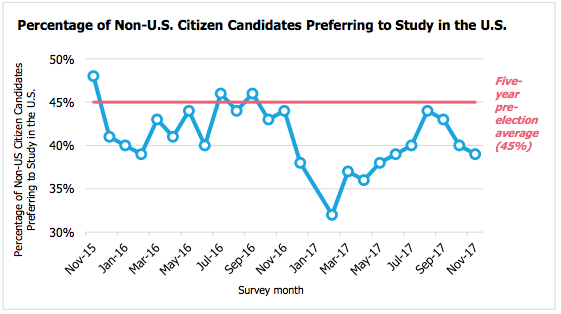
Image via GMAC report.
Just before Donald Trump’s election victory, approximately 46 percent of international MBA applicants surveyed by GMAC responded that they would prefer to study in the United States—above the 45-percent, five-year, pre-election average. But not once since November 2016 has that been the case. The percentage of international applicants indicating a preference for U.S. business schools plunged at the beginning of 2017, to below 40 percent in January and just over 30 percent in February. Summer 2017 saw a bit of a rebound—though never reaching 45 percent—but international interest has again declined this fall.
Of 1,992 non-U.S. candidates surveyed between September and November 2017, 23 percent shared that they had previously thought about applying to a U.S. program but have since changed their mind. As for the reasons behind applicant reluctance:
- 54 percent cited concerns about obtaining a job in the U.S. post-graduation
- 51 percent admitted concerns about gaining a student visa
- 47 percent cited safety and security concerns
- 42 percent talked about the political environment
- 39 percent admitted racism and discrimination fears
In addition, when GMAC surveyed nearly 700 U.S. MBA programs, about half admitted that they had received fewer international applications than in the previous year. Only 31 percent reported an increase in international applications. Another 20 percent reported no significant change.
For additional insights from GMAC as well as continued tracking of international candidate interest, visit the GMAC research website.
This article has been edited and republished with permissions from our sister site, Clear Admit.
Columbia Research Illuminates Unconscious Cause of Fake News

Fake news, the most oft-repeated phrase of 2017, doesn’t just rise out of some malevolent direction. According to Columbia Business School, there are many social factors hidden in the process.
Fake news has become an epidemic of sorts, as the recent investigation into how Russia used divisive Facebook posts to possibly influence the presidential election demonstrates, planted stories can have a “powerful and multiplying effect” due to their circulation on social media. Reportedly, fake news possibly impacted elections France and Kenya, as well.
Gita Johar, the Meyer Feldberg Professor of Business at Columbia Business School, along with doctoral students Youjung Jun and Rachel Meng, published research entitled Perceived Social Presence Reduces Fact-Checking in which they discovered that people are less likely to investigate the veracity of ambiguous claims when they are “consumed in a group setting” and when that information “aligns with their own party affiliation.”
According to the article, Johar, Jun, and Meng “conducted eight experiments to evaluate how the presence of others affects the way that people evaluate information and the extent to which people verify ambiguous claims.” The study found that “perceiving the company of others seemed to influence people’s willingness to verify information, not how much they believed it.” Their research posited three potential reasons why “collective settings may suppress fact checking.”
- Individuals may exert less effort (and hence be less likely to fact-check claims) because they expect to ‘free ride’ on others.
- People may abide by social norms that lead them to take the words of others at face value.
- Crowds may inherently cause people to feel ‘safety in numbers,’ which decreases vigilance in general.
Johar concludes, “Animals in the wild hide out and feel safer in herds and, similarly, we feel safer in a crowd. When applied to information consumed on social media, this same instinct results in lower fact-checking.”
You can read more about the trio’s research on fake news stories on the official Columbia Business School website.
Metro News And Notes: Brexit Affecting UK Education, Hulu At UCLA And More

Good morning and happy Friday!
Here are a few stories you may have missed from the week that was …
Why Should Americans Love Canadian MBA Programs?

It’s not because of the election outcome that American students should head to Canada for their MBA. For many, it should be because of diversity not only in the student body but also in the school’s programming, which often requires students to complete work in other countries. At least that’s one reason Alyssa King decided to leave Texas and go to the University of British Columbia for her MBA. “There’s quite a diverse group of professors here, and the class that they recruit is much more diverse than the classes I saw in the U.S.,” she told the Globe and Mail. Continue reading…
International Students Wary Of Potential Immigration Changes
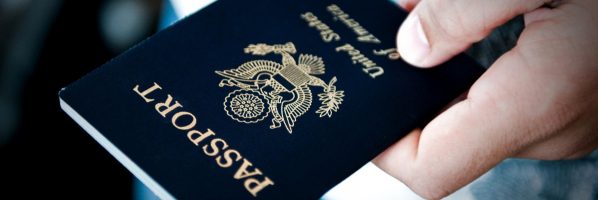
As the wake of the recent presidential election begins to settle, among the first effects has been a possible trajectory change where international students pursue an MBA.
The Financial Times recently followed the story of Amrita Dwivedi, a marketing executive from New Delhi who has worked with Google and Deloitte. Prior to last Tuesday, Nov. 8, 2016, Dwivedi was considered several standout U.S. business schools. After the results, however, they’re rescinding those suggestions, instead opting to focus on the London Business School and Insead to pursue their MBA.
“I want to be able to work in the country where I study after graduation,” they said in an interview with FT reporter Jonathan Moules. “So it is important to be in a place that is immigrant-friendly.”
Even in Europe, however, those options may also soon become limited. Just months after Great Britain opted to leave the European Union, new Prime Minister Theresa May has already gone on record saying that the number of student immigrant visas will likely be reduced. This could also potentially impact Dwivedi’s final decision.
The potential changes come after a wave of international students joined U.S. business schools with a record number of applications at many institutions, including at Michigan Ross.
Ross’ recently hired dean Scott DeRue shared some similar concerns over what could come during a Donald Trump presidency, as the new president-elect has gone on record multiple times against many immigration policies.
“I understand and empathise with those concerns but let’s remember that most presidents campaign in poetry and govern in prose,” DeRue says.
“If there was a restriction on visas to students that would clearly be somewhat harmful to us,” adds Chicago Booth School of Business dean Douglas Skinner. Booth has seen a precipitous rise in applicants in recent years, including a double-digit percentage increase in 2016. However, Skinner notes that nearly a third of students at Booth are from overseas—a figure that’s actually lower than many other business schools across the U.S.
Shading optimism, Skinner also notes that there’s a significant chance that domestic applicants may rise in the wake of policy changes. That, and the fact that Booth has been through some tough times before.
“We have been around since 1898, and the school has survived lots of ups and downs in the economy during that time,” he says.
